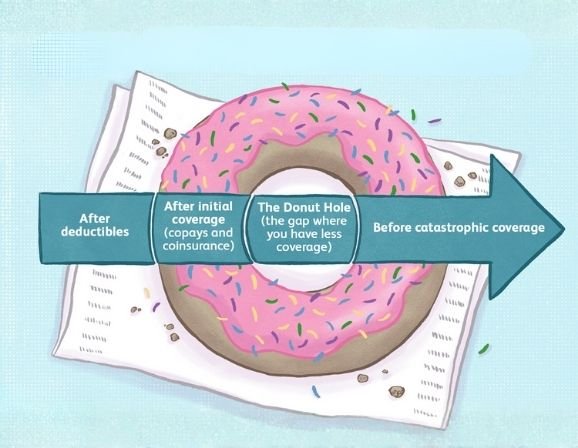Your tax return does more than settle your yearly bill with the IRS. It decides if you qualify for ACA subsidies and how much you get. Income, filing status, and household details on your return all shape your premium tax credit. Get it wrong, and you could face surprise repayments. Get it right, and you save big on health coverage.
What the Premium Tax Credit Is
The premium tax credit (PTC) is a benefit under the Affordable Care Act (ACA). It lowers the cost of monthly health insurance premiums for people who qualify.
You can take it two ways:
- Advance payments (APTC): Sent directly to your insurer each month to lower your bill.
- Year-end claim: Taken when you file your federal tax return.
At tax time, you must reconcile what you received against what you truly qualify for based on your income and household.
How Income on Your Tax Return Decides Subsidy Size

Why MAGI Matters
The IRS uses your modified adjusted gross income (MAGI) to decide subsidy eligibility. MAGI includes:
- Adjusted gross income (AGI)
- Non-taxable Social Security benefits
- Tax-exempt interest
The lower your MAGI, the larger the subsidy. If your income is too high, your subsidy shrinks or disappears.
Filing Status Can Make or Break Eligibility
If you are married and filing separately, you generally cannot claim the premium tax credit. Exceptions apply only in cases of domestic abuse or spousal abandonment.
Couples must file married filing jointly to stay eligible. But filing jointly combines income, which may push you above the subsidy threshold. In the year of marriage, you can request an alternative calculation to prevent losing all subsidy eligibility.
Reconciling Advance Payments vs. Actual Eligibility
When you take advance premium tax credits, you must file Form 8962 with your tax return. Form 1095-A from the Marketplace shows what the government paid.
At filing:
- If you got too much subsidy, you may have to repay part or all.
- If you got too little subsidy, you claim the extra as a refund.
Not filing Form 8962 at all means you lose access to future advance credits. Prime Life Financial helps reconcile advance payments so you avoid big repayment surprises.
What Happens If Income Changes Mid-Year

Subsidies are based on projected income. If your income changes, your eligibility changes.
Example:
- You estimated $50,000 annual income.
- By year-end, you earned $70,000.
- You could owe back part of the subsidy at tax time.
This is why the IRS and Marketplace recommend reporting life or income changes right away. Prime Life monitors income changes with you, keeping your subsidy accurate all year.
Who Counts in Your Tax Household
ACA subsidies depend on your tax household. This includes:
- You
- Your spouse (if filing jointly)
- Dependents you claim
Even if someone in the household doesn’t enroll in ACA coverage, they still count for subsidy calculations.
Common Mistakes That Kill Your Subsidy
- Underestimating income: Leads to excess subsidy, which is repaid at tax time.
- Not filing with Form 8962: Blocks future advance subsidies.
- Wrong filing status: Married filing separately disqualifies you.
- Not reporting changes: Advance credits get out of sync, creating repayment risks.
Avoid costly mistakes. Prime Life ensures your ACA subsidies are safe and accurate.
How to Use Your Tax Return to Plan Better
Smart planning with your tax return can keep your subsidy safe:
- Estimate income and household early.
- Choose the right advanced credit level.
- Report mid-year changes quickly.
- File your tax return with Form 8962.
- Adjust for next year based on reconciliation.
Let PrimeLife Financial create a tax-smart ACA strategy for you and your family.
Final Thoughts
ACA subsidies can cut your health costs, but only if your tax return is accurate and up to date. Income shifts, filing choices, or missed forms can quickly change what you owe. Prime Life Financial helps you plan ahead, file correctly, and keep every dollar you deserve. Enrollment is open. Act now to protect your subsidy and your savings.
FAQs
Are ACA subsidies based on taxable income?
Yes. Subsidies are based on MAGI, modified adjusted gross income. That’s your AGI plus some untaxed income.
What disqualifies an employee from being eligible for an advance premium tax credit?
Having access to affordable employer coverage or filing married filing separately (without exception) generally disqualifies you.
How does claiming the Affordable Care Act premium credit impact your tax return?
It lowers your premium costs, but you must reconcile with Form 8962. That can increase your refund or add tax owed.
How does a health insurance subsidy affect tax returns?
Advance subsidies must be reconciled. Too much = repay. Too little = refund.
References
The Premium Tax Credit – The basics | Internal Revenue Service. (n.d.). https://www.irs.gov/affordable-care-act/individuals-and-families/the-premium-tax-credit-the-basics
Questions and answers on the Premium Tax Credit | Internal Revenue Service. (n.d.). https://www.irs.gov/affordable-care-act/individuals-and-families/questions-and-answers-on-the-premium-tax-credit
Eligibility for the Premium tax Credit | Internal Revenue Service. (n.d.). https://www.irs.gov/affordable-care-act/individuals-and-families/eligibilit






